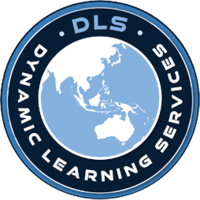Course providers in Darwin
The following providers offer the FBP30121 Certificate III in Food Processing in Darwin.Entry requirements
Entry requirements set by ASQA are the basic qualifications and criteria that students must meet before enrolling in a nationally recognised course.
These requirements ensure students have the skills and knowledge needed to undertake this course.
- There are no formal academic requirements
- Additional entry requirements are set by individual course providers
Course fees
The estimated fee reflects the price range across training providers in Darwin.
The course fee is determined by each individual provider and may vary depending on factors like study mode and student support availability.
Career opportunities
The Certificate III in Food Processing will prepare you for the following roles.
Food Production Worker
A Food Production Worker performs a range of tasks during the production of food or drink products. You might be involved in preparing and mixing i...
Food Process Worker
A Food Process Worker is part of the overall manufacturing team at a food or drink making facility. You might prepare ingredients to make food or d...
Production Worker
A Production Worker plays a vital role in manufacturing and production settings, handling tasks such as assembling products, operating machinery, a...
Food Production Supervisor
A Food Production Supervisor manages a team of workers at a food processing facility. You might supervise the overall production of food and drink...
Production Operator
A Production Operator uses a range of plant and equipment in the mining industry. You might work in a metalliferous processing facility or in coal...
Find a course provider
Compare all providers for the available in Darwin to find the right fit for you.
More about Certificate III in Food Processing
The Certificate III in Food Processing is a vital qualification for individuals looking to establish a career in the food industry within Darwin, 0820 Australia. This course equips students with the practical skills and theoretical knowledge essential for various roles in food production. By enrolling in this course, individuals can gain insights into food safety practices, processing techniques, and the operation of machinery used in manufacturing. The training is delivered by recognised providers such as Kangan Institute, DLS, AFTC, IIFP, and Australian College of Training, primarily through an Online delivery mode for convenience and flexibility.
Successful completion of the Certificate III in Food Processing opens the door to numerous job opportunities in Darwin. Graduates can pursue roles such as a Production Worker, an Assistant Baker, or a Food Production Worker. These roles are critical in ensuring the efficient and safe processing of food products, reflecting the growing demand for skilled individuals in the local food industry.
The course content is tailored to meet the needs of various sectors. For instance, students may find connections to Manufacturing courses and Engineering courses, which complement the skills gained in food processing. Additionally, students can explore advanced roles such as a Food Production Supervisor or a Chemical Engineer, paving the way for career advancement in industries linked with food manufacturing.
In Darwin, the food processing sector is thriving, and obtaining a Certificate III in Food Processing represents a strategic step for individuals looking to enter the workforce. With practical experience and a foundational understanding of food processing, graduates can aspire to become Food Process Workers, Apprentice Butchers, or even venture into more specialised roles such as a Micro Brewer. Such positions prove essential as the local economy continues to evolve, embracing innovative approaches to food production.
Participating in the Certificate III in Food Processing course not only cultivates practical skills but also prepares individuals to adapt to various roles within the food sector. As industries in Darwin grow, the relevance of skilled workers becomes increasingly prominent. With pathways to positions including Production Operators and Abattoir Labourers, graduates emerge equipped to contribute effectively to their workplaces, utilising the knowledge gained from a reputable training provider. To explore further, visit the course details at Certificate III in Food Processing in Darwin.





